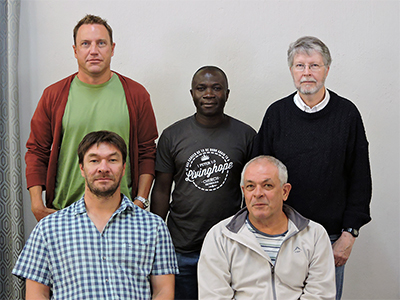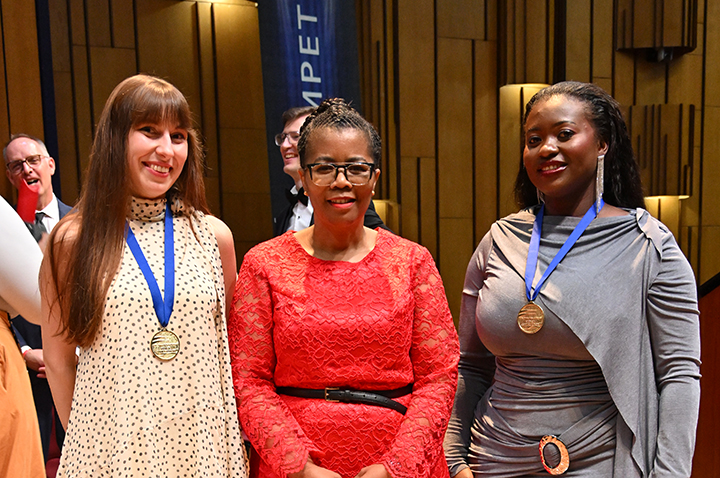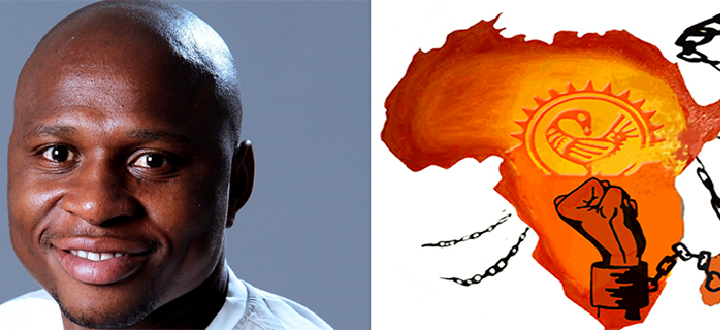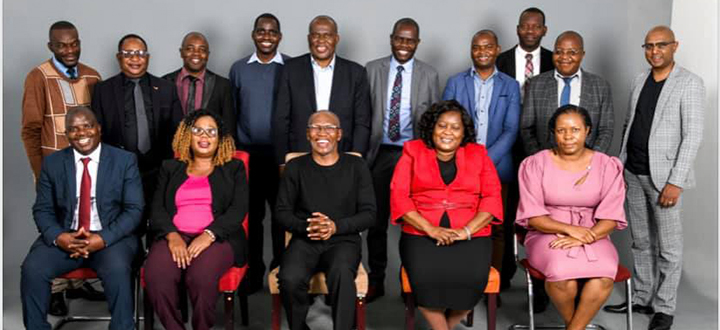
The largest provider of business education in Africa and one of the largest in the world
 Back, Prof George Davie, Prof. Safari Mukeru, and Prof Glyn Jones, and, front, Prof Paul Potgieter and Prof Willem Fouché (Leader: Decision Sciences team) Absent: Prof Petrus Potgieter
Back, Prof George Davie, Prof. Safari Mukeru, and Prof Glyn Jones, and, front, Prof Paul Potgieter and Prof Willem Fouché (Leader: Decision Sciences team) Absent: Prof Petrus PotgieterA group of researchers from the Department of Decision Sciences is working on a one-million-euro project to improve the basis for software applications, especially in engineering and the applied sciences.
Funded by the European Union, the huge project involves universities in eight European countries, as well as Japan, Korea, Chile, and South Africa. The Computing with Infinite Data (CID) project is administered from the University of Siegen, in Germany, the project headquarters.
The local researchers are members of the Computability, Complexity, and Randomness in Decision Sciences (CCRDS) research group at Unisa.
The joint project started on 1 April 2017. CID received funding under the Horizon 2020 programme of the European Commission and will run over four years. It will fund staff exchanges of at least one month per annum for each participant as well as an annual open workshop.
One of the aims of the CID project is to improve the functioning of applications by studying formal methods for proving the correctness of algorithms and also representations of exact computation with (infinite precision) real numbers.
Examples are the autopilot in an aircraft or the software monitoring and managing rail traffic that need to function free of errors. Self-driving cars also require very high levels of software correctness.
“Up to now, it has not been possible to map the mathematical theory, one-to-one, to programming languages,” explains Professor Dieter Spreen from the University of Siegen, and a regular visitor to Unisa. He and his colleague, Professor Markus Lohrey, are the leaders of the project.
According to the experts, one of the problems is that of decimal precision, which many know from school. In normal software, rounding errors occur and these have consequences. Spreen says: “One aim of our research is to remove the misalignment between mathematical theory and that which takes place in the computer, thereby alleviating the problem of imprecision in the software.”
At the same time, the researchers are working on methods for proving the correctness of engineering applications that would, for example, replace laborious testing of software in critical applications (which might nevertheless fail to detect many problems) by mathematical proofs that provide one hundred percent certainty of and testimony to the safety requirements being met.
According to Professor Willem Fouché of Decision Sciences, “the CCRDS research team will contribute to the utilisation of randomness as a computational resource. This is essential for performing real exact computations in feasible time.”
*By Ilze Crous
Publish date: 2017/11/30
 Unisa celebrates a project of hope, dignity and student success
Unisa celebrates a project of hope, dignity and student success
 Women vocalists take top honours at Unisa's globally renowned showcase
Women vocalists take top honours at Unisa's globally renowned showcase
 African wealth is dependent on investment in education and development
African wealth is dependent on investment in education and development
 Unisa celebrates matric result success at Correctional Services ceremony
Unisa celebrates matric result success at Correctional Services ceremony
 Unisa ICT Director recognised among acclaimed IT leaders
Unisa ICT Director recognised among acclaimed IT leaders